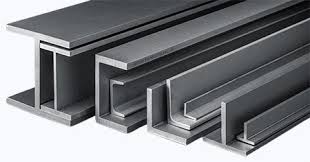Get A Quote
BIS Certification for Structural Steel (Ordinary Quality) IS 15911:2010

Building steel that
satisfies the fundamental safety, quality, and performance requirements
established by the Bureau of Indian Standards is guaranteed by BIS Certification
for Structural Steel (Ordinary Quality) IS 15911:2010.
For suppliers and manufacturers looking to uphold legal obligations and foster confidence, this accreditation is essential. Under this specification, structural steel finds extensive usage in general building applications. In addition to improving product credibility, obtaining BIS Certification for Structural Steel (Ordinary Quality) IS 15911:2010 enables companies to participate in government contracts and expand their market reach.
As required by The
Steel and Steel Products (Quality Control) Order, 2024, the BIS Certification
for Structural Steel (Ordinary Quality) IS 15911:2010 guarantees that the steel
used in construction satisfies safety, dependability, and quality standards.
For importers and producers, this certification is crucial since it guarantees
that their goods meet Indian requirements. It encourages structural integrity
in building projects and fosters confidence among end users. In addition to
improving marketability, BIS certification is required by law; thus, structural
steel firms must get conformity as soon as possible.
Why is BIS certification necessary for Structural Steel
(Ordinary Quality) IS 15911:2010?
To guarantee that
the material satisfies the quality, safety, and performance requirements
established by the Bureau of Indian Standards, structural steel (ordinary
quality) IS 15911:2010 must be certified by the BIS. This certification lowers
the danger of structural failures by ensuring that the structural steel used in
building projects is dependable, long-lasting, and in compliance with national
standards. IS 15911:2010 requirements must be followed by manufacturers to
guarantee consistency and customer confidence. In addition to improving market
credibility, obtaining BIS Certification for Structural Steel (Ordinary
Quality) IS 15911:2010 facilitates easy access to projects in both the public
and private sectors.
Overview of Indian Standard IS 15911:2010
The specifications for ordinary-quality structural
steel, which is typically utilised in common engineering and construction
applications, are outlined in Indian Standard IS 15911:2010. To guarantee
quality and safety, it includes topics including mechanical characteristics,
chemical composition, and testing procedures. For producers looking to prove
adherence to national safety standards, this requirement is crucial.
Particularly for the infrastructure and construction industries, BIS
Certification for Structural Steel (Ordinary Quality) IS 15911:2010 guarantees
that the material satisfies Indian regulatory standards, improves product
confidence, and permits lawful market access in India.
Process for BIS Certification
The BIS certification process for Structural Steel (Ordinary
Quality) IS 15911:2010 and involves multiple steps designed to thoroughly
evaluate a product's compliance with the required standards. Here is a general
overview of the certification process:
1. Application Submission: Manufacturers
must submit an application form along with the required documentation to BIS.
2. Documentation Review: BIS
reviews the submitted documents to ensure completeness and correctness.
3. Factory Inspection: BIS
officials conduct an on-site inspection of the manufacturing facility to assess
the production process and quality control measures.
4. Sample Testing: Product samples
are taken and tested in BIS-approved laboratories to verify compliance with
Indian standards.
5. Certification Grant: Upon
successful completion of the inspection and testing, BIS grants certification,
allowing the manufacturer to use the BIS mark on their products.
Documents Required for BIS Certification
To apply for BIS certification, manufacturers need to submit the following documents:
● Application form
● Manufacturing process details
● Quality control plan
● Test reports from BIS-approved laboratories
● Factory layout and equipment details
● Proof of business registration
● Product specifications and technical details
● Declaration of conformity to Indian standards
Additionally, manufacturers may be required to provide proof of compliance with environmental and safety regulations, depending on the specific type of product being certified.
BIS ISI Mark Certification Costing And Timeline
To Know The Process in Detail, Please Visit:
Under BIS Registration Products ISI and CRS
Conclusion
In conclusion, guaranteeing adherence to national
safety and quality requirements requires getting BIS Certification for
Structural Steel (Ordinary Quality) IS 15911:2010. In addition to increasing
the legitimacy of your structural steel goods, this certification makes you
more marketable for government and private sector projects that require
BIS-approved materials. At EVTL India, we offer professional consulting
services to assist companies in effectively and easily navigating the BIS
certification process. Our thorough knowledge of legal requirements guarantees
that your application is correct, comprehensive, and fully compliant with IS
15911:2010 regulations. You can cut down on delays and save money by following
our expert advice. BIS Certification for Structural Steel (Ordinary Quality) IS
15911:2010 is a wise investment for any manufacturer or supplier hoping to
increase market share and foster confidence. You may rely on EVTL India to be your
trustworthy partner in obtaining certification success and enhancing the market
position of your product.
Free Call Back
Latest News & Update
📅 BIS Critical Component List (CCL) Updates for Solar PV Modules
🕒 BIS Fee Concessions for MSMEs and Startups | EVTL India
📅 Guidelines for Implementation of Essential Requirements for Security of CCTV
🕒 Omnibus Technical Regulation (OTR) Amendment Order, 2025
🕒 Extension of Timeline for Filing Annual Returns by Battery Producers
📅 Extension of Timeline for Filing Quarterly and Annual Returns for E-Waste
🕒 Extension of Concurrent Running Period for IS 302-1: 2008 and IS 302 (Part 1): 2024
🕒 BIS Guidelines for Grant of Licence (GoL) | EVTL India
📅 CPCB Guidance on filing of Application, Fees and more
🕒 CPCB Notification on Labelling of Plastic Packaging
📅 Mandatory Compliance for Input Materials of Steel and Steel Products for Imports
🕒 BIS Guidelines for Scheme-X Certification for OTR-Regulated Products
📅 BIS Upgrades Product Certification License Numbers to 10-Digit Series
🕒 BIS Certification No Longer Mandatory for 14 Chemical & Polymer Categories
Why Choose EVTL INDIA
Expertise in Indian Regulatory Standards
End-to-End Support
Trusted by Top Indian & Global Brands
Fast Processing & Transparent Pricing
Strong Liaison with Indian Authorities
Company Profile














